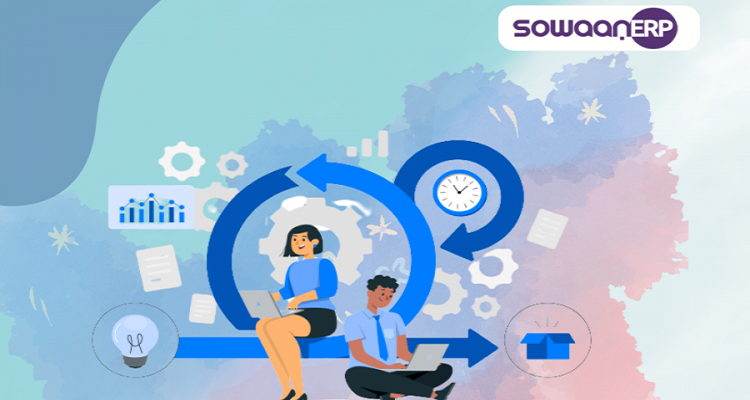
In the past few years, Enterprise Resource Planning (ERP) systems have come a long way. They imply to be used only by big businesses, but now businesses of all sizes can use them. The market of ERP Software Companies in Saudi Arabia is always changing, and each year brings new trends. Here is the top ERP providers in Saudi Arabia trends to keep an eye on in 2023.
Top ERP TRENDS
1. Cloud-Based ERP Systems
Given their adaptability and low cost, cloud-based ERP systems in Saudi Arabia are becoming increasingly popular. Thanks to these systems, businesses can access their data from anywhere, at any time, and on any device. Cloud-based ERP systems also don’t require expensive hardware or IT staff, which makes them a good choice for businesses of all sizes.
2. Artificial Intelligence and Machine Learning
The ERP market is changing because of Artificial Intelligence (AI) and Machine Learning (ML). For instance, ERP companies in Saudi Arabia can use these technologies to look at a lot of information and generate forecasts based on it. AI and ML can. For example, helps businesses predict the demand for their products, estimate sales, and improve their supply chain.
3. Mobile ERP
Mobile ERP systems are becoming more important as more employees work from home than ever. With these systems, employees can use their mobile devices to access their data and work from anywhere. The best ERP solutions in Saudi Arabia can also help businesses simplify operations, increase productivity, and satisfy customers.
4. Blockchain
Blockchain technology is gaining popularity in ERP software solutions in Saudi Arabia due to its ability to increase transparency and security. By using blockchain, businesses can ensure that their data is accurate and tamper-proof. This can be particularly important in industries where data integrity is critical, such as healthcare and finance.
5. Internet of Things (IoT)
The Internet of Things (IoT) is a network of connected devices that can communicate with each other and with ERP systems. By using IoT devices, businesses can collect data in real-time and use that data to optimize their operations. For example, a manufacturing company could use IoT sensors to monitor the performance of their machines and automatically schedule maintenance when necessary.
6. Data analytics
Data analytics is an important trend in the ERP market, as businesses seek to gain insights from their data. With the help of data analytics tools, businesses can analyze their data to identify trends, patterns, and anomalies.
7. User experience
User experience is becoming increasingly important in the ERP market. Businesses are looking for ERP systems that are easy to use, intuitive, and customizable. ERP vendors are responding by creating systems with modern interfaces, improved workflows, and enhanced user experiences.
8. Sustainability
Sustainability is a growing concern for businesses around the world. ERP systems can help businesses track their carbon footprint, reduce waste, and improve their sustainability efforts. ERP vendors are developing features and functionality that allow businesses to monitor and manage their sustainability initiatives.
9. Integration
Integration is a key trend in the ERP market. Businesses are looking for ERP systems that can integrate with other systems and applications, such as Customer Relationship Management (CRM) software, e-commerce platforms, and marketing automation tools. ERP vendors are developing integration capabilities that allow businesses to connect their ERP systems with other systems and applications.
10. Personalization
Personalization is another important trend in the ERP market. Businesses are looking for ERP systems that can be customized to meet their specific needs and requirements. ERP vendors are developing systems with flexible architectures and customizable workflows that allow businesses to tailor their ERP systems to their unique business processes.
Conclusion:
In a nutshell, the ERP market is constantly changing, and each year brings new trends. In 2023, businesses should pay close attention to cloud-based ERP systems, AI and machine learning, mobile ERP, blockchain, the Internet of Things, data analytics, user experience, sustainability, integration, and personalization. Companies may enhance their operations, make more money, and stay ahead of the competition by following these ERP trends. In today’s business world, where things change quickly, it’s vital for businesses to keep up with the latest trends and use new technologies. As technology keeps getting better, the ERP market is sure to change even more, giving businesses of all sizes new chances and problems.
